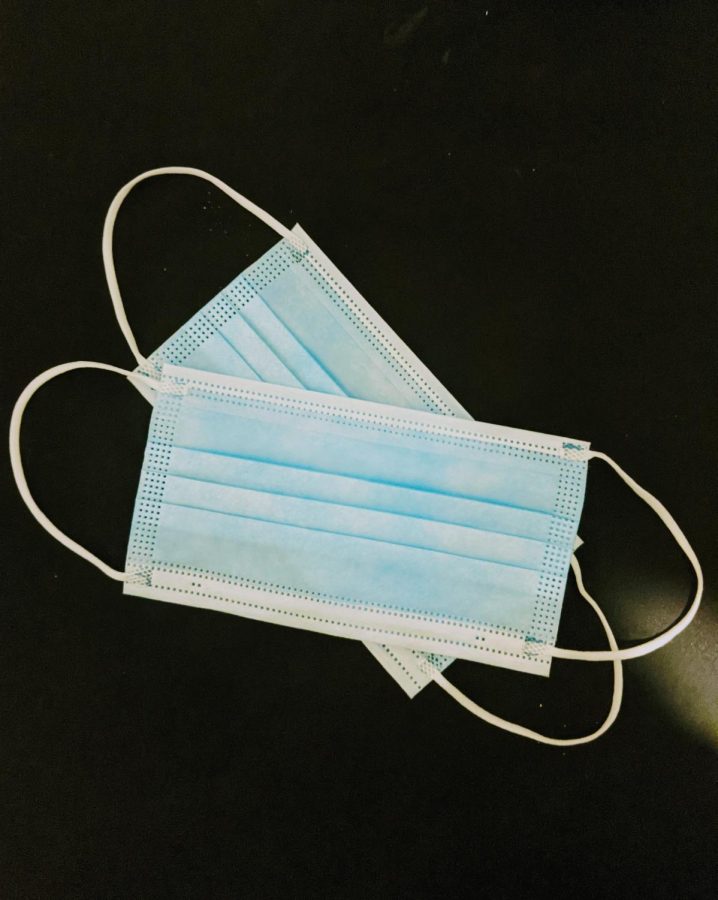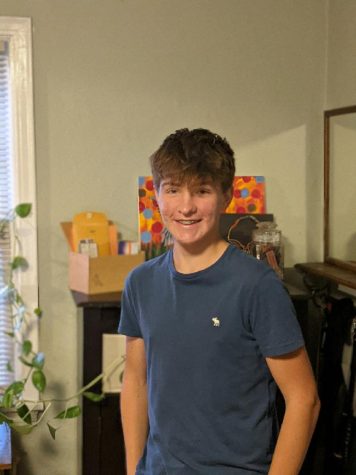What it means to live in fear
COVID-19 has affected our lives in many different ways. For students, the contact tracing program is just one more consequence.
The mask mandate came as a surprise to many.
April 14, 2021
 The telephone rings in the classroom. The students try to hide their unbearable anxiety as the teacher converses with the entity that hides itself through the phone. Is it about me? Am I in trouble?
The telephone rings in the classroom. The students try to hide their unbearable anxiety as the teacher converses with the entity that hides itself through the phone. Is it about me? Am I in trouble?
Although the entire interaction takes place in less than 15 seconds, the wait feels like an eternity. An inconsequential outcome is extremely likely, but every so often, that phone call spells doom for one unlucky student.
In past years, most of these kids knew what was coming. They committed the offense, so they knew that at some point, they would have to pay. In 2021, this holds a completely different meaning. Hundreds of students have paid drastic prices for an action that is of no fault to them whatsoever: simply being in close proximity to someone who contracted COVID-19.
The contract tracing program, which was implemented district-wide at the beginning of the year, has resulted in quarantines for a number of students, and as someone who has completed three of them in the past five months, I have definitely felt the wrath. The first one put me in isolation for Thanksgiving, making me spend the holiday at home for the first time in 15 years. The second one knocked out two weeks in January, causing me to miss my first day of track practice. My last one kept me in my house for over half of my spring break. Each one hurt more than the last, and at this point, a fourth would be devastating, but it’s bound to happen at some point.
Ever since we extended the opportunity for 5 days of in-person learning to everyone, social distancing has become impossible in our schools, and cases of COVID-19 have been on the rise. Our first shutdown happened after only four days in the new model, and the damage it caused was immeasurable. Dozens of kids were forced to stay at home for nearly their entire spring break, simply because of our district’s premature advances. The percentage of students in our school who have received their vaccine is not large enough to warrant a return to normalcy, and putting large numbers of them in a classroom forces them to face the reality that at any moment, everything could come crashing down. The worst part is, they won’t know until it hits them.
Of course, people have ways of coping with this; mine has been to physically eliminate as many instances of close contact as I can. This comes in many forms, from taking my study halls in a mostly empty room to eating my lunch in a classroom, as well as sitting at a lab table in chemistry. I keep a close record of everyone whose contact could possibly be traced to me, and that list contains less than ten people at this point, aside from those on the track team, which I am convinced will be my demise at some point. It feels weird to say this, but I feel the most safe around people who have already tested positive for the virus. They aren’t harmful anymore, and being around them won’t force me to stay home for ten days, so letting them into my circle is fine. This leads to sticky situations; asking someone if they’ve tested positive in the last three months is extremely uncomfortable, but unfortunately, it’s something that I feel the need to do at this point.
Even with all of these preventative measures, isolation is likely to show me its wicked face for the fourth time sooner rather than later, and when that happens, the only thing I can do is accept my fate. I probably could have saved myself from this depressing situation a few weeks ago when given the choice to remain in the hybrid model, but alas, I was not granted the gift of foresight, and as for hindsight, I ignored it. January was months ago, I told myself. I was convinced of my immunity, and my desires took over for my rational thinking skills.
Am I surprised at this? No, not really. I’m fifteen years old. Kids are stupid. Bad decisions, like they do for everyone, manifest themselves in my nature, and this certainly was an example. Limiting my exposure to the coronavirus was undoubtedly the right thing to do, and though I feel the desire to blame others for the situation I’m in, I know that’s not right either. After all, they’re probably feeling guilt already. Former presidents are probably feeling guilt for mismanaging a pandemic so badly that it pervaded a country for over a year. Administrators are probably feeling guilt for reopening their schools a bit earlier than they should have. Citizens are probably feeling guilt for disregarding the advice of experts and allowing this virus to spread even further than it should have.
You know what, though? Maybe they aren’t. And maybe they need to question why that is.



